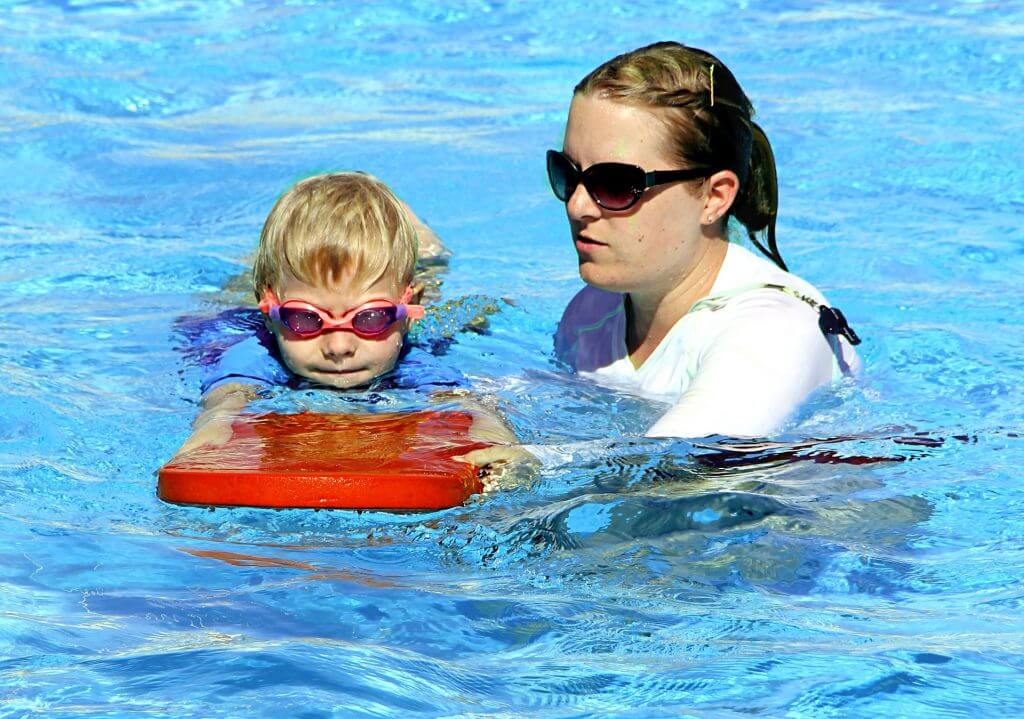Three Tips for Aspiring Swimmers of All Ages

Three Tips for Aspiring Swimmers of All Ages
One of the most positive aspects about competitive swimming is that anyone can do it. No matter what level you’re at or what age you are, swimming can provide an excellent form of exercise. It can also function as a stress reliever from other daily activities – such as work or school.
There is no restriction on what someone can achieve in the water, so you should never be afraid to get started.
Here are some tips for aspiring swimmers who might be ready to “dive on in” to the world of swimming.
1. Have Confidence
“Living, thinking, feeling and acting under the guidance of a winning mind is hard and permanent work, 24 hours a day, every day,” Daniel Colombo writes in the online article “8 Traits to Have a Winning Mindset.”
One of the most important things a swimmer can be is confident! In order to swim a best time, you must first believe that you can swim a best time. Positive self talk and motivational pep talks can help do the trick! It can also be beneficial to have a team that cheers you on and pushes you to be your best self, no matter what time shows up on the clock.
If you need to, it can even be helpful to make a list of your past successes and strengths. Writing something down makes it real, or permanent. It’s no longer just an idea in your head that you can ignore or write off.
Another thing can help improve confidence is visualization. This goes back to positive self talk. A swimmer can improve their self image by seeing the race in their mind and envisioning themselves achieving their goals. This visualization should help these swimmers beat their own best times. Newer swimmers should not focus on the other swimmers around them, but instead focus inward and visualize their races for themselves.
Adjusting one’s thought process can go a long way toward improving motivational – and even leadership – skills in athletes.
2. Set Goals
One of the nice things about swimming is that it works as an individual sport, while also providing its athletes with a strong team and support system. This makes it easy for athletes to set personal goals for themselves. Goals do not have to be related to times. They can be – of course – if you want them to be. And if you’ve been swimming for a while, improving an old personal record might be just the thing to motivate you into having a stellar season.
For newer swimmers, it might be easier to have different goals. Maybe you want to be able to swim a 200-yard race without stopping. Or perhaps you want to finally be able to complete a breaststroke turn without getting disqualified. Focusing on these goals during practice will help you to become a better swimming overall. Stroke work happens in practice! However, during meets it is best to relax.
Obsessing over the weaknesses in your strokes will only make you jittery and anxious if you’re doing it right before a meet. If you’re doing this, you are experiencing an unhealthy amount of stress and may need to take a few deeps breaths in order to calm yourself down. Goals are not meant to be negative things. They’re supposed to be bright beacons of light that can give you something to work towards. And if you don’t reach a goal? It doesn’t mean that you failed. It simply means that you need to keep working hard in order to get there. The eventual pay off will feel amazing.
Do not stress about a hard meet. Rise to the challenge, focus on yourself, and try to achieve the (positive) goals that you set.
3. Try New Things
Swimming is one of those sports that allows for a team to have a wide variety of talents and skills sets. This is because swimming offers many different strokes and distances.
The backstroke, butterfly, breaststroke and freestyle all have different motions and require different skills. There is also a huge difference between 50s, 200s and 500s. Not everyone can excel at everything. But it is always good to try everything, just so you know what you would want to swim in meet.
Most club swim teams allow their members to pick some or all of their events, meaning that it is very easy to try new events at club meets. So go for it!
Broadening your skill set can help you as you become better at swimming. And who knows? Maybe you’ll enjoy swimming that “impossible” 200 I.M. and be able to focus on improving that for next time, even if your time wasn’t the greatest. It is always good to be a flexible swimmer. That means that you’re able to swim multiple events. And if your coach needs someone to step in? You can volunteer!
This is your sport, so make sure to tackle every part of it.
Dive on In
Swimming is an amazing sport that can be beneficially to you no matter what level you’re at or what age you are. So, don’t be afraid to to start competing. The first step can be looking for a place to swim. Search for local swim clubs, gyms, or organizations in and around where you live. You’re bound to find something.
And then your swim journey can begin!
All commentaries are the opinion of the author and do not necessarily reflect the views of Swimming World Magazine nor its staff.




Great article!